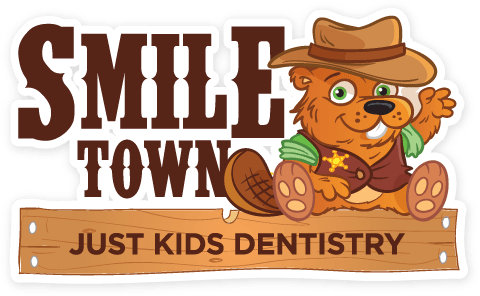Children’s Dental Care Tips For Parents
Tips For Oral Health
Book a visit by the first birthday!
A child should visit the dentist within six months of the eruption of the first tooth or by age one. Early examination and preventive care will protect your child’s smile now and in the future.
Dental problems can begin early!
A big concern is Early Childhood Caries (also known as baby bottle tooth decay or nursing caries). Children risk severe decay from using a bottle when they nap or at bed time.
The Canadian Dental Association supports breastfeeding as it provides nutritional benefits to the infant and is recognized as an effective preventive health measure. In the absence of daily oral hygiene care, breastfeeding is one of many risk factors that may contribute to the development of dental caries. Therefore, it is vital that mouth cleaning or tooth brushing be part of the daily routine for all infants, including those who are breastfed. – Canadian Dental Association Board of Directors June 2013
The earlier, the better!
The earlier the dental visit, the better the chance of preventing dental problems. Children with healthy teeth chew food easily, are better able to learn to speak clearly, and smile with confidence. Start them on a lifetime of good dental habits.
Avoid the sweet temptation!
Never dip a pacifier into honey or anything sweet before giving it to a baby.
Watch their snacks!
Limit frequency of snacking, which can increase a child’s risk of developing cavities.
Introduce the cup!
Encourage children to drink from a cup as they approach their first birthday. Children should not fall asleep with a bottle. Drinking juice from a bottle should be avoided. When juice is offered, it should be in a cup.
Weaning the bottle!
Children should be weaned from the bottle at 12–14 months of age.
Thumb sucking is okay, to a point!
Thumb sucking is perfectly normal for infants; most stop by age 2 and it should be discouraged after age 4. Prolonged thumb sucking can create crowded, crooked teeth or bite problems. Dentists can suggest ways to address a prolonged thumb sucking habit.
They could be missing out!
Children who drink primarily bottled water may not be getting the fluoride they need.
Help with the teething pain!
From 6 months to age 3, children may have sore gums when their teeth erupt. Many children like a clean teething ring, cool spoon, or cold wet washcloth. Some parents prefer a chilled ring; others simply rub the baby’s gums with a clean finger.
Use the proper tools for them!
Parents should ensure that young children use an appropriate size toothbrush with a small brushing surface and only a “smear” of fluoride toothpaste at each brushing. Young children should always be supervised while brushing and taught to spit out rather than swallow toothpaste. Unless advised to do so by a dentist or other health professional, parents should not use fluoride toothpaste for children less than two years of age.
Parents need to brush too!
Parents and caregivers need to take care of their own teeth so that cavity-causing bacteria are not as easily transmitted to children. Don’t clean pacifiers and eating utensils with your own mouth before giving them to children. That can also transmit adults’ bacteria to children.
Children’s Dental Care Tips For Parents
Call Us Now
519-749-9981


